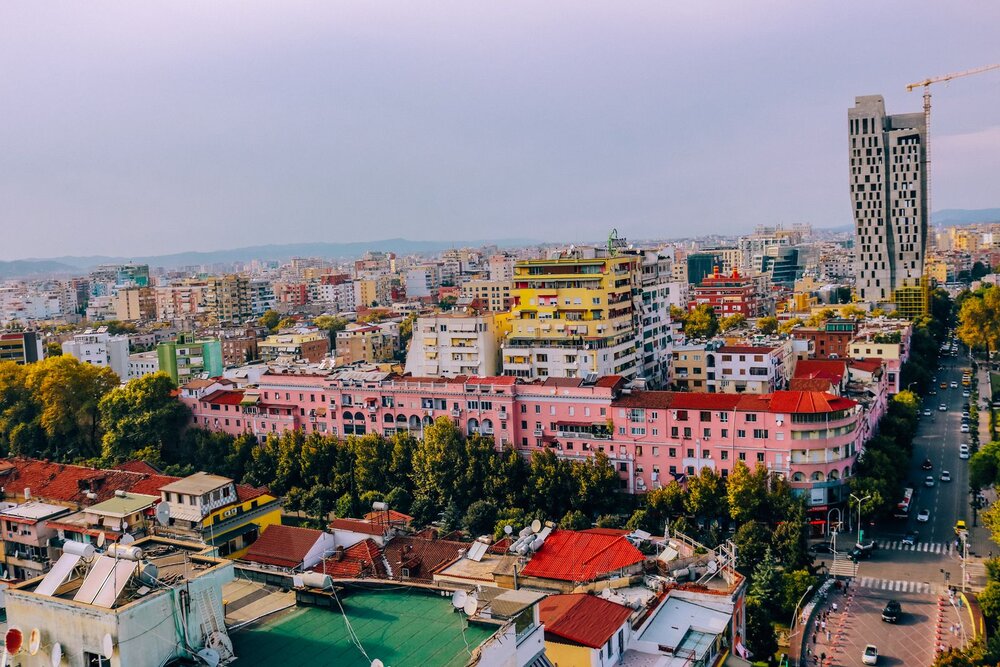The average price of residential property in Tirana has more than doubled since 2017. In a recent study which compares price-to income ratio, the capital of Albania was put on par with Munich and Milan. But is it reasonable to view the pricing-out of most prospective homeowners from the market as a negative development? Not necessarily.
Soaring property prices in a specific market are linked to large accumulations of capital, which in a healthy economy come as the result of growth, and the attractiveness of that market to foreign and local investors. The frustration of prospective homebuyers and tenants in Tirana is shared amongst citizens of most European capitals.
But in contrast to our geographical neighbors, we have a lot more to worry about. Even the most creative Albanian economists struggle to provide a well-founded economic rationale for the soaring property-prices. From 2013, Albania has experienced extremely modest economic growth, whilst more than 400,000 (predominantly young) people have emigrated. Over 20% of the remaining Albanian youth are unemployed. Our neighboring countries in the Balkans have experienced more growth in recent years, yet average house-prices in Tirana are the highest in the region. Furthermore, the level of foreign investment in Tirana has been negligible. Wealthy foreign investors cannot be blamed for the price-surge, as they often are in Milan, Munich and other cities.
The Elephant in the Room
Tirana’s construction boom came to a halt in 2012, as the market had catered to the existing demand for housing that had been created before after the fall of communism. The number of construction permits granted in the following years in the district of Tirana is negligible. But things drastically changed in 2016.
In a highly publicized report issued by the Global Initiative against Transnational Organized Crime, it was stated that by 2016, criminal organizations in Albania had started using the proceeds from the illicit marijuana trade to start operating in the “Balkan-Route”, one of the most established drug-trafficking routes in the world for cocaine and heroin. The yearly gains from the illicit trade of hard narcotics in Albania exceed 500 Million USD, a considerable portion of which is laundered in the property market.
In a recent article by The Economist, criminal organizations in Albania were praised for their creativity in devising sophisticated transport methods for smuggling drugs. It was noted however, that they were rather conservative when it came to investing. A large part of the profits is used to finance construction projects in the capital and other big cities. In the same study cited above, it was estimated that around 1.6 Billion dollars were laundered through the Albanian Property Market from 2017-2019. The number of reported cases of money laundering went down from year to year, in that same period.
The Government’s response to this issue has been rather feeble. But the ramifications of this price bubble can very well turn out to be catastrophic. If the current depopulation trend continues, and if the government does not implement the necessary measures to enable an economic turn-around, it might very well be that in a few decades Tirana will contain more buildings than people. And in order to ensure stable economic growth, it is imperative the Albanian economy becomes less dependent on the grey and black economy, which together account for around 40% of the GDP.
Fighting organized crime and money-laundering should be on top of the priority list for the new Rama Government. Tirana is ranked on top of the list of European cities most at risk for money-laundering. The Government has often blamed the dysfunctionality of the justice system for the extremely slow progress in fighting money laundering.
But in its inception, the process of money laundering through the construction sector does not necessitate the involvement of corrupt or otherwise inept members of the judicial system. Permits are granted by local authorities, and it is estimated that of the 141 companies which received building permits between 2017-2019, 59% did not have enough debt or equity capital to finance the project, according to their own balance sheets. If the Government intends to fight money-laundering in the construction sector, refusing to grant permits to companies which are inadequately financed should be a good start.










